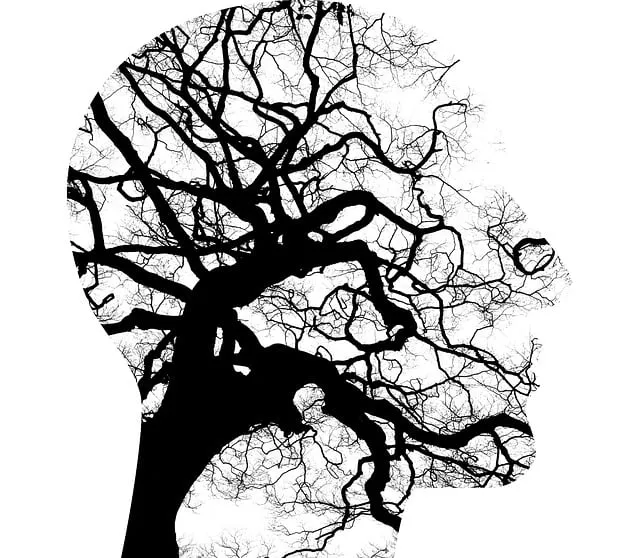The Kaiser Permanente Mental Health Appointment Center Golden prioritizes cultural diversity, offering patient-centered care through initiatives like public awareness campaigns, workshops, and integrating traditional healing practices. Their focus on understanding varied belief systems, values, and communication styles fosters a supportive atmosphere, closes cultural gaps, and enhances well-being for all patients, making it a leader in culturally sensitive mental healthcare services.
“Cultural sensitivity is a cornerstone of quality care, especially in diverse communities like that served by the Kaiser Permanente Mental Health Appointment Center in Golden. This article explores how cultural diversity enriches mental healthcare, focusing on the impact of sensitive practices on patient outcomes. We delve into strategies employed at Kaiser Permanente Golden to provide culturally competent care, backed by case studies demonstrating successful implementation. Understanding and respecting cultural nuances are essential for effective treatment and improved patient experiences.”
- Understanding Cultural Diversity in Mental Healthcare at Kaiser Permanente Mental Health Appointment Center Golden
- The Impact of Cultural Sensitivity on Patient Care and Outcomes
- Strategies for Providing Culturally Competent Care in a Diverse Community
- Case Studies: Successful Implementation of Cultural Sensitivity in Clinical Practice
Understanding Cultural Diversity in Mental Healthcare at Kaiser Permanente Mental Health Appointment Center Golden

At the Kaiser Permanente Mental Health Appointment Center Golden, understanding cultural diversity is paramount to delivering effective and sensitive care. With a patient population reflecting the rich tapestry of our global community, mental healthcare professionals here embrace the challenge of providing culturally competent services. This involves recognizing and respecting diverse belief systems, values, and communication styles, ensuring every individual receives care tailored to their unique background.
The center leverages initiatives like public awareness campaigns development and workshops on stress reduction methods and conflict resolution techniques to foster a supportive environment. By integrating these strategies, Kaiser Permanente Mental Health Appointment Center Golden aims to bridge cultural gaps, promote healing, and enhance the overall well-being of its diverse patient base.
The Impact of Cultural Sensitivity on Patient Care and Outcomes

In the diverse communities served by Kaiser Permanente mental health appointment centers, such as the Golden location, cultural sensitivity is more than a nicety; it’s a cornerstone of effective patient care. Understanding and respecting a patient’s cultural background, traditions, and values allow healthcare providers to offer tailored support that resonates with individuals from various ethnic, racial, and socio-economic backgrounds. This nuanced approach enhances trust between patients and their caregivers, encouraging open dialogue about sensitive topics like mental health struggles. As a result, it facilitates the development of coping skills and promotes anxiety relief, leading to better management of mood disorders.
Cultural sensitivity fosters an inclusive environment where patients feel seen, heard, and understood. This, in turn, can significantly improve treatment outcomes. By integrating cultural competency into practice, Kaiser Permanente mental health centers contribute to reducing disparities in care, ensuring that all patients receive the highest quality services that address their unique needs. Ultimately, this patient-centered approach not only enhances satisfaction but also drives positive transformations in mental well-being and overall life quality.
Strategies for Providing Culturally Competent Care in a Diverse Community

In a diverse community like the one served by Kaiser Permanente mental health appointment centers in Golden, providing culturally competent care is paramount. One key strategy involves educating healthcare professionals on various cultural backgrounds and traditions to ensure they can offer sensitive and effective treatment. This includes learning about different beliefs related to mental health, such as how depression might be expressed or perceived across cultures, and understanding the significance of family dynamics and community support systems in healing processes.
Cultural sensitivity also extends beyond knowledge to practice. It involves actively listening to patients’ stories, respecting their autonomy, and tailoring treatment plans to align with their values and preferences. Incorporating patient-centered approaches, such as encouraging open dialogue about stress reduction methods or depression prevention strategies that resonate with their cultural identity, fosters trust and engagement in mental health care.
Case Studies: Successful Implementation of Cultural Sensitivity in Clinical Practice

In the context of cultural sensitivity, Kaiser Permanente’s mental health appointment centers have served as a beacon of best practices. One notable case study involves a center in Golden, CO, where a diverse team of therapists and counselors embarked on a journey to create an inclusive environment for all patients. They implemented tailored therapy sessions that incorporated traditional healing practices from various cultures, fostering a deeper connection between patients and their caregivers. This approach not only enhanced the therapeutic process but also led to improved patient retention rates.
The center’s success is further evidenced by its integration of mindfulness meditation as a supplementary practice. Recognizing the universal benefits of mindfulness, they incorporated it into their Crisis Intervention Guidance, effectively managing mental health risks among diverse populations. This holistic approach, combined with rigorous Risk Management Planning for Mental Health Professionals, has made Kaiser Permanente’s Golden mental health appointment center a model for culturally sensitive care, setting a standard that other facilities strive to emulate.
Cultural sensitivity in mental healthcare is not just a best practice, but an imperative for centers like the Kaiser Permanente Mental Health Appointment Center in Golden. By understanding and embracing cultural diversity, implementing strategic interventions, and learning from successful case studies, healthcare providers can significantly improve patient care and outcomes. This approach ensures that services are accessible, respectful, and tailored to meet the unique needs of a diverse community, ultimately fostering better mental health outcomes for all.






